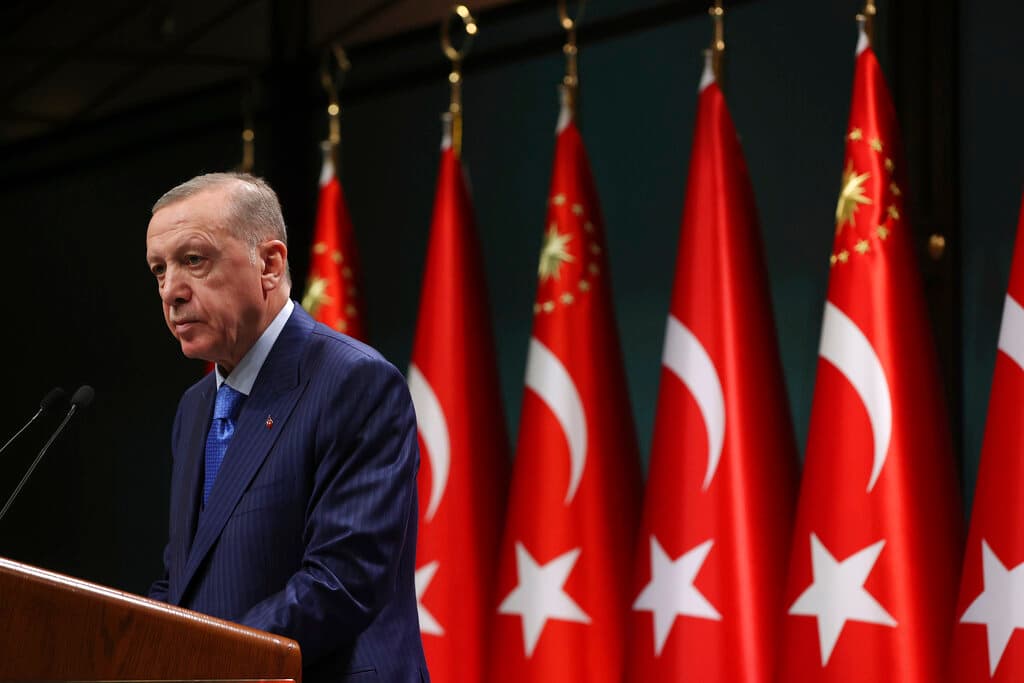Behind Turkey’s Abrupt Halting of Trade With Israel, Some Political Soft-Shoe Seems To Be Afoot
Just what the Middle East needed — a new trade war.

Turkey’s decision to suspend trade relations with Israel shows how conflict in the Middle East is reverberating across the wider region, but it also speaks to slow but seismic shifts in the domestic Turkish political landscape. So Ankara’s balking at Jerusalem, and the decision made this week on trade, could ultimately be more intriguing than commercially consequential.
Please check your email.
A verification code has been sent to
Didn't get a code? Click to resend.
To continue reading, please select:
Enter your email to read for FREE
Get 1 FREE article
Join the Sun for a PENNY A DAY
$0.01/day for 60 days
Cancel anytime
100% ad free experience
Unlimited article and commenting access
Full annual dues ($120) billed after 60 days

